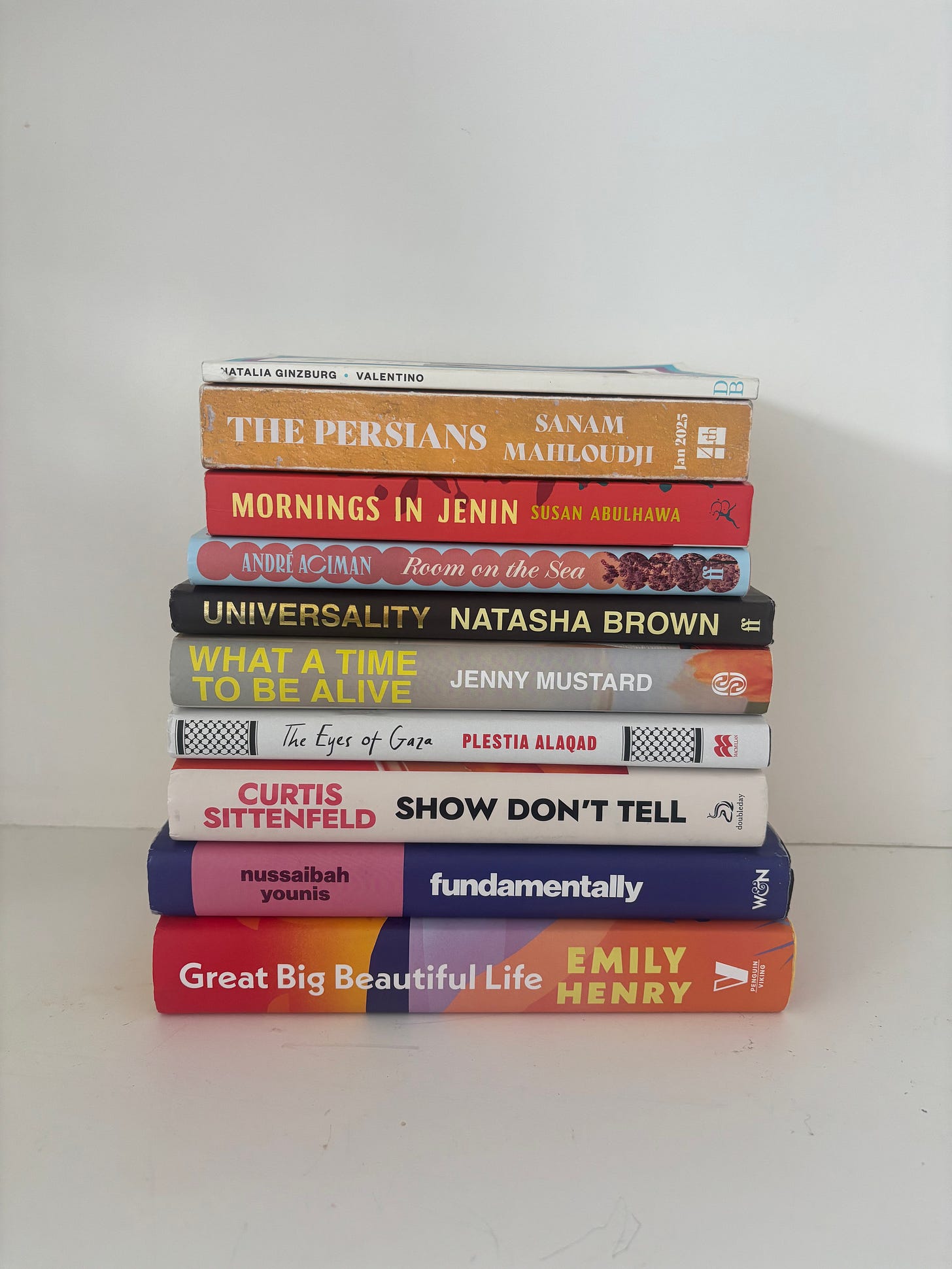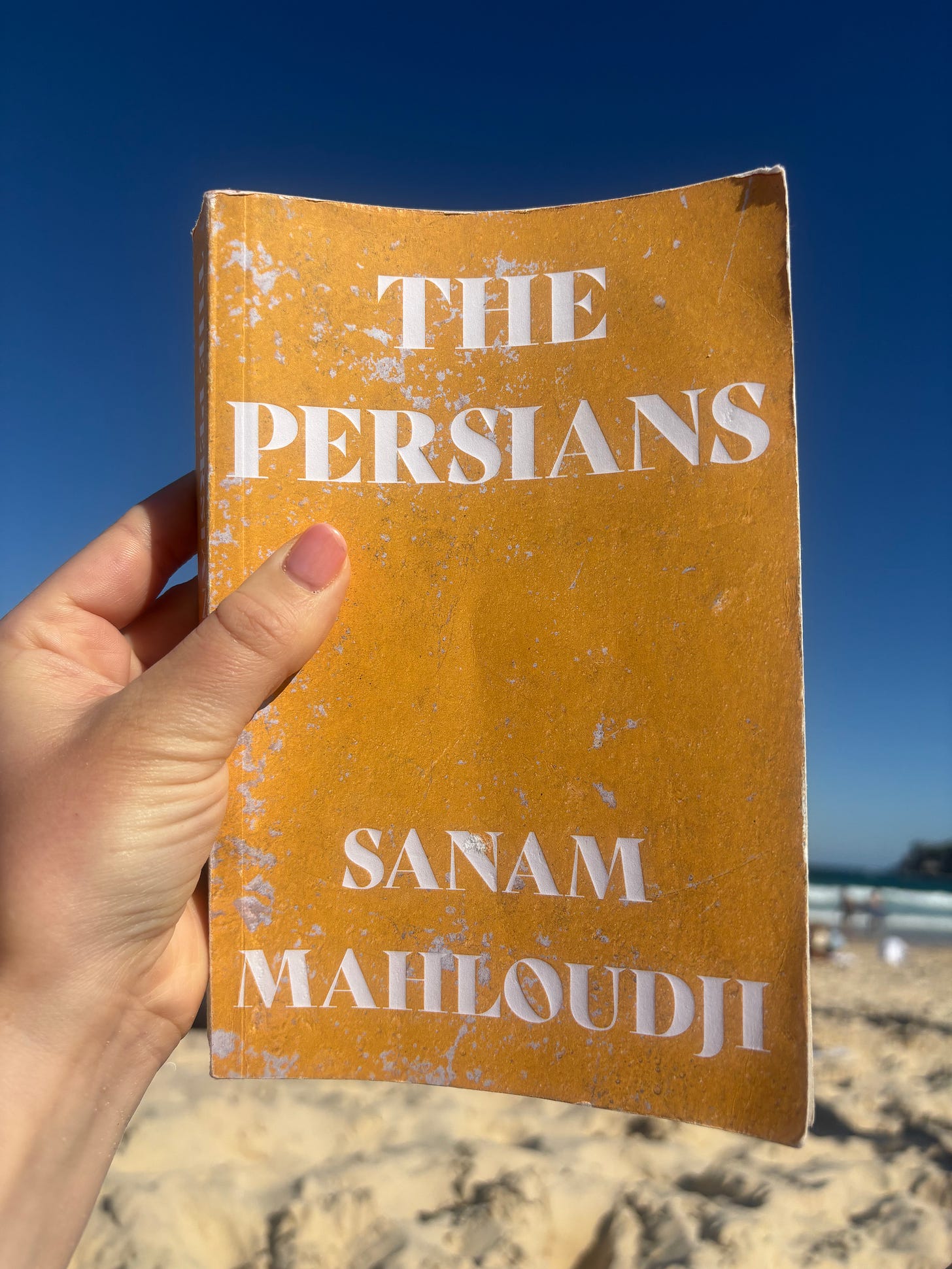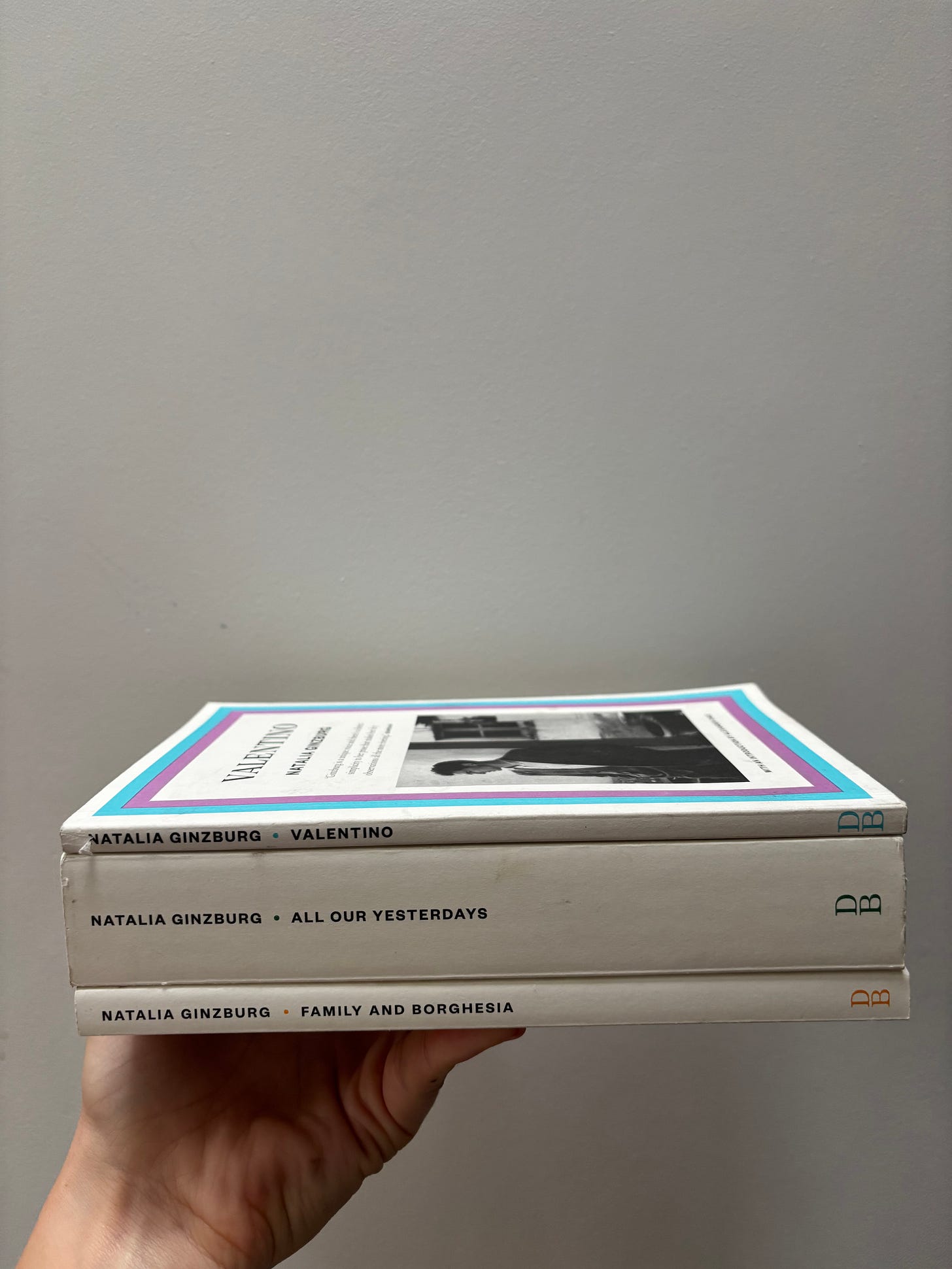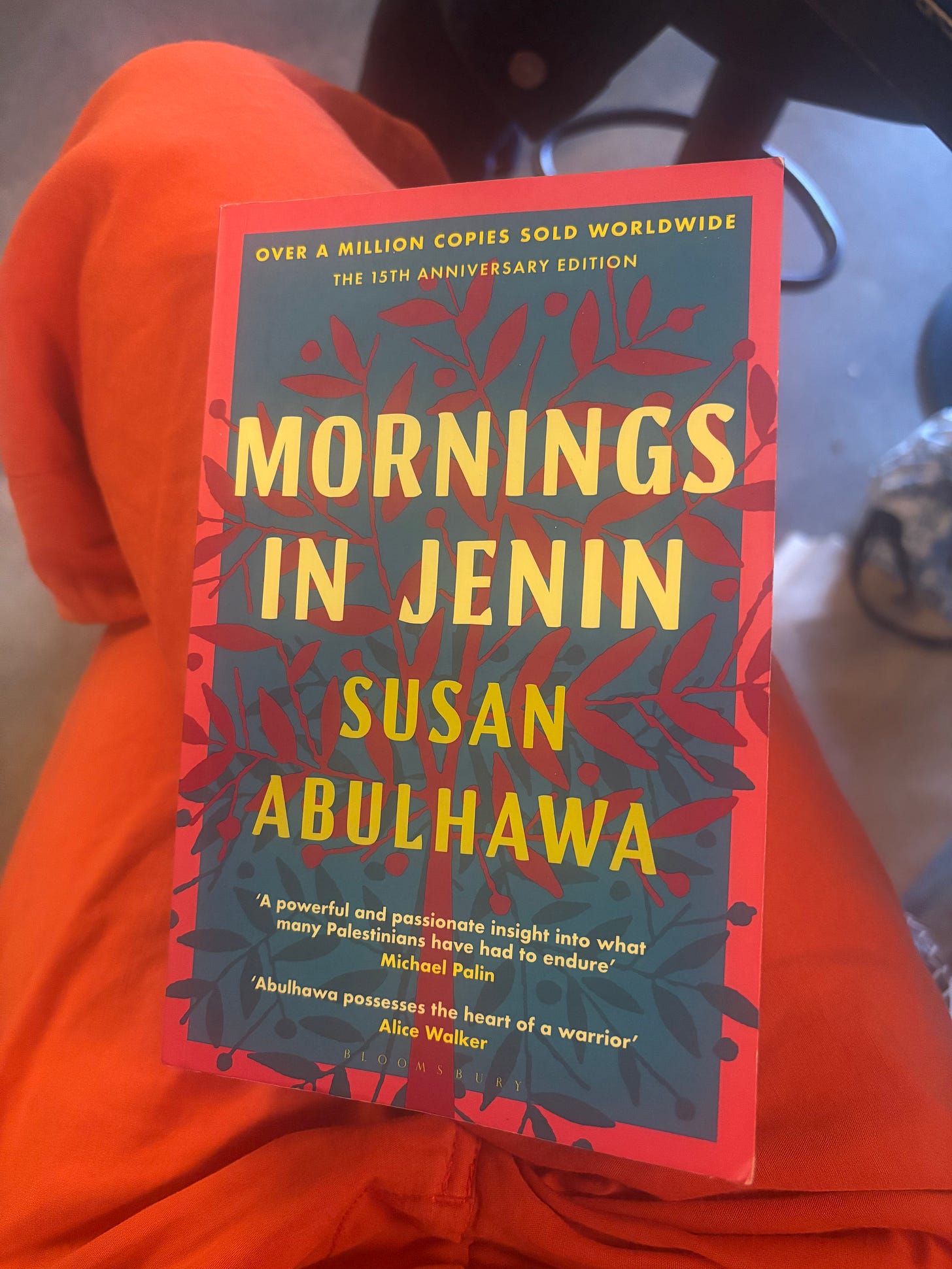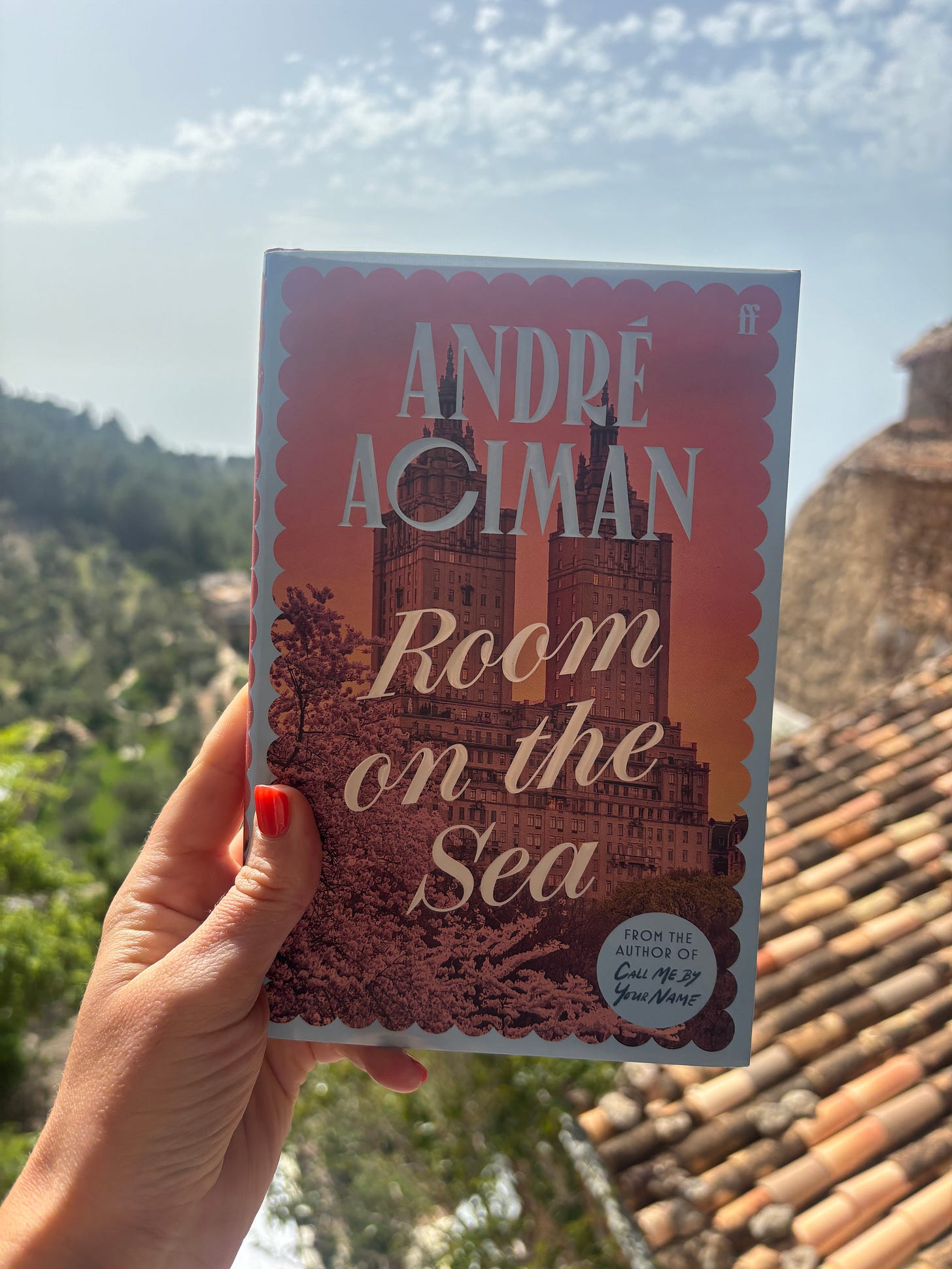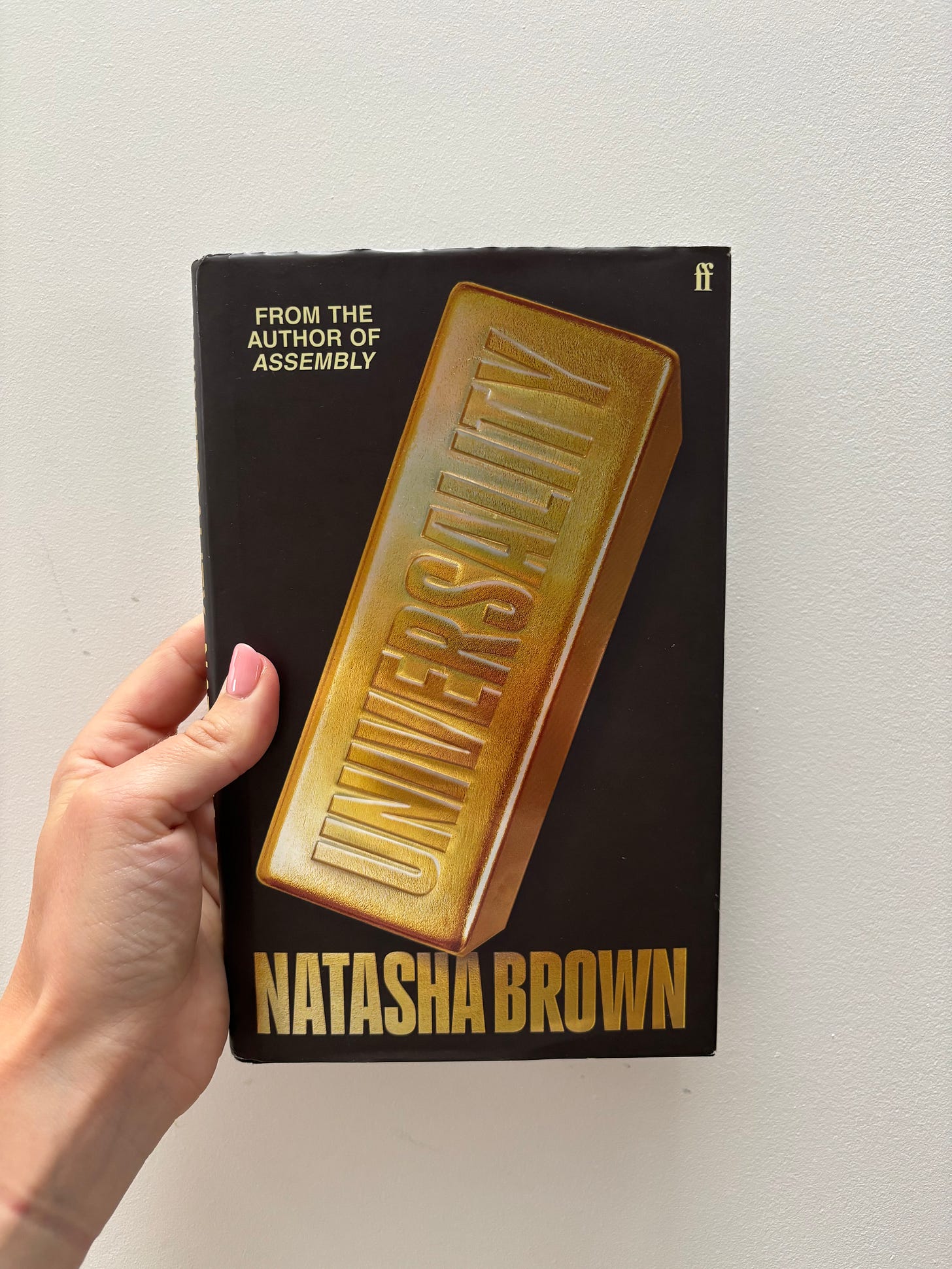I went to a wedding last weekend and four separate people told me how much they appreciate What Eliza Reads. One dedicated boyfriend found my account while looking for birthday present ideas for his girlfriend, a good friend of mine: he looked at the accounts she follows on Instagram, thought my reviews were well-written (his words!) and chose two books to buy her based on them. How thoughtful is that? She’s already read them both, and we discussed Welcome to Glorious Tuga by Francesca Segal and how excited we are that there’s a sequel coming out.
I’m not saying this to brag, but rather to explain why I’m back after a bit of a break. While I write for the joy of expressing my thoughts about books, a recommendations newsletter is only really useful when people are actually looking for recommendations. All it takes is for one kind reader or follower to tell me they appreciate my reviews, and I feel inspired to start writing them again.
Of course, I’ve still been reading. Not as much as usual — I’ve been sticking to my resolution not to worry about the numbers — but still more than your average person, as reassured by my friends at the wedding (again, not bragging, but it’s good to remind myself that I do have things to say). I’ve mostly been reading without an agenda, just picking up whichever book appeals when it’s time to start a new one, and it feels pretty good. I’m still going to the library (although I keep extending my loans), listening to audiobooks (although fewer than when I was training for my recent marathon) and reading the odd book on my Kindle (although I need to get back to those NetGalley titles), but I’ve generally been prioritising the glossy new hardbacks I keep treating myself to. Shiny object syndrome is alive and well!
I was planning to write about 10 books I’ve read in the last couple of months because 10 is a nice, big number and they make a satisfyingly eclectic stack. I’ve since decided to divide them into two different posts, because (a) it’s good content and will give me two posts to share here, (b) it’s already quite long and I don’t want to bore you (but I also don’t want to shorten the reviews because it turns out I’ve got a lot to say) and (c) I’m at risk of getting distracted and failing to post this, so think it’s better to strike while the iron’s hot.
Here are the first 5:
The family drama with a cast of unique characters
The Persians is the story of three generations of women in the Valiat family. Once one of the wealthiest and most-respected families in Iran, most of the Valiats fled to the US during the 1979 Revolution, while the others remained in Tehran. It’s a story of family, identity, culture and belonging, as well as an entertaining tale of strong-willed women butting heads; there’s history, politics and loss, but also partying, extravagance and bad behaviour.
The Persians is my favourite kind of novel, with a cast of equally strong characters whose backstories are each fleshed out, helping the reader to understand how they’ve come to be as they are. Each strand focuses on one of the five women in the family: the cold matriarch, Elizabeth, whose complicated childhood determined the rest of the family’s fates; her daughters, the defiant Shirin and more conventional Seema, who settled in Houston and Los Angeles, respectively; and her granddaughters, Niaz, who remained with her in Tehran, and Bita, the quietest, most serious of them all, who is questioning the life of luxury she lives in New York City.
I love how the men in the novel only feature where they affect the women’s choices. And this is a story about the choices these women make and how they determine the rest of their lives, for better or for worse. It’s not perfect, but it’s fun, and I’d recommend this as a holiday read for fans of Still Life, The Bee Sting or Hello Beautiful.
The timeless Italian novella
For my birthday, I was given three books from the stunning Daunts’ collection of Natalia Ginzburg’s work, and I decided to start with Valentino (because it’s the shortest!) I really love a novella. There’s something so beautiful about reading a whole book in one sitting — it’s more rewarding than a short story, and delightfully self-contained. I was very moved by this deceptively straightforward classic, first published in 1957.
Valentino is the story of a man who fails to live up to his parents’ expectations. Narrated from the perspective of one of his sisters, Caterina, it describes how Valentino was the golden child when they were young, predicted to be a ‘man of consequence’, despite increasing evidence to the contrary. A spoilt, lazy medical student, Valentino generally seems uninterested in starting either a career or a family. That is, until one day, when he brings home an unexpected fiancée, the ugly but rich Maddalena.
Valentino is a tale of class, gender and social expectations, which will transport you to 1950s Italy. I’d recommend it for fans of simple prose, stilted family dynamics and European realism.
The devastating multi-generational novel
I was relieved to find this copy of Mornings in Jenin in an otherwise disappointing beach town bookshop in Queensland, Australia. Several friends had been recommending this bestselling novel first published in 2006, so I took this as a sign to finally dive into what I knew would be an emotional read.
Mornings in Jenin is a heartbreaking story about four generations of a Palestinian family. It begins in 1948, when the Abulheja family is forcibly removed from their beautiful ancestral home in Ein Hod, facing further tragedy on their difficult journey to the refugee camp in Jenin. They remain in the camp for decades, attempting to rebuild their life and community after already losing so much. The novel is written between the first and third person, largely following the protagonist, Amal, who is born in the camp in Jenin, survives the 1967 war and eventually travels to Jerusalem, America, Lebanon, in pursuit of a better life. But what does a better life mean, when everyone you know and love has been lost to the war?
While the characters of Mornings in Jenin are fictional, they are largely based on Abulhawa’s own family, and the historical facts are accurate. From the opening pages, it’s a gut-wrenching read, which had me in tears several times. It’s especially powerful in the context of the current war in Gaza, a stark reminder of how much suffering the Palestinian people have endured for almost 80 years and how little has changed since the book was first published.
I would recommend Mornings in Jenin for anyone wanting to learn more about the historical context of the conflict. It’s an undeniably devastating but beautifully humane story of resilience which deserves all the acclaim it has received.
The heartwarming novella about a chance encounter
On a lighter note, Room on the Sea is a gorgeous little book about an older couple who meet while doing jury service one sweltering Manhattan summer. Both married, these strangers begin to spend time together after they’re sent away from court every day. They drink coffee, share food and discuss their life experiences.
There’s something so beautiful about love stories with older protagonists, and Acíman is one of the best at writing them. This novella highlights the self-assuredness that comes with age, experience and self-knowledge. Yet, while the protagonists are mostly candid and decisive, there’s still a bashfulness and insecurity in their interactions that is common in the early days of a courtship, regardless of one’s age or circumstances.
I love a love story, but I also appreciate beautiful writing, and I’ve always admired how Acíman explores universal themes of Love, Time and Memory in his work. I photographed several pages while I was reading this, as I was so struck by the way he articulates feelings such as regret, nostalgia and intimacy
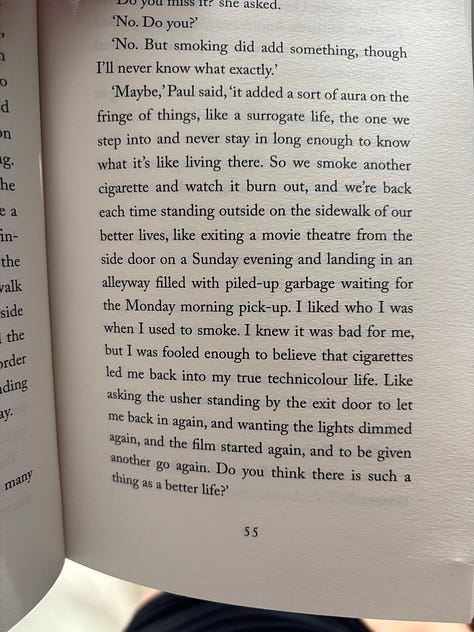
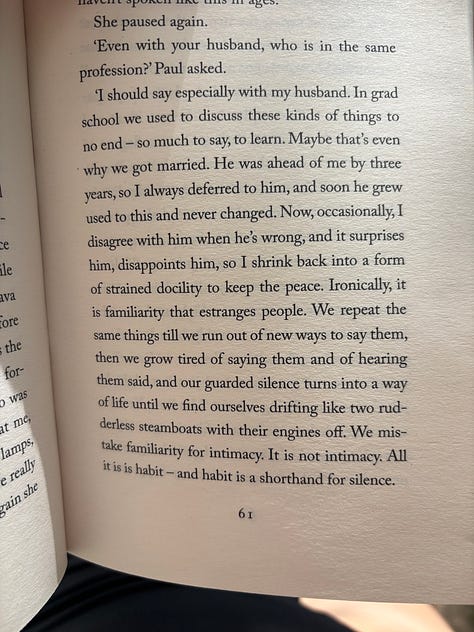
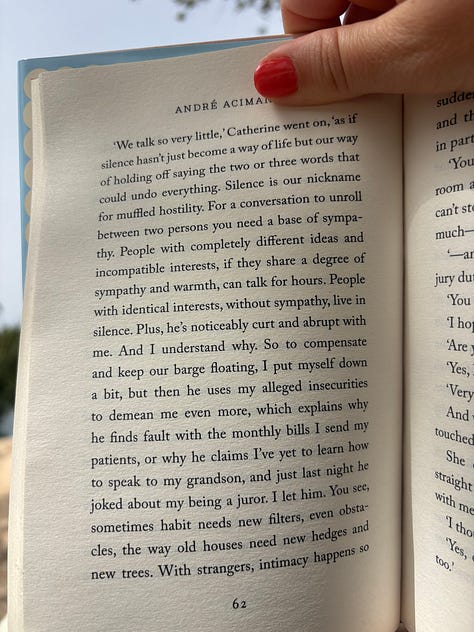
I posted a little review of this on my Instagram and said I might write a longer post on Acíman’s work. He’s especially influenced by and interested in the work of Proust (scroll down for more Proust praise!), and I love how this comes into both his fiction and non fiction. I wouldn’t hold your breath, but I’ll try to get round to this ode to Acíman one day.
The social commentary on modern Britain
Natasha Brown’s debut, Assembly was an undeniable hit, and the literary world has been waiting for four years for more of her razor-sharp writing. In Universality, she turns her attention from race, gender and the workplace to focus on capitalism, greed, power and truth. I am in awe of Brown, who left her finance job to write these two novels, beautifully executed them both and now says she’s planning to return to the corporate world. What a cool woman!
Universality opens with an exposé, a Guardian long read-style deep-dive into a story about the theft of a gold bar, a lockdown rave, a banker landlord, an outspoken columnist and a radical squatter community. While this whodunnit is compulsive and thrilling, it’s hard not to wonder where Brown is going. The story soon opens up to reveal more about each of the characters in this tale, including the author of the exposé herself, as well as their individual agendas and biases. Yet, as we seem to get closer to the truth, we realise quite how slippery it is; not one of the narrators is reliable.
Universality is a story about stories and storytelling, an exploration of the power of language and the ways that words can both wound and shape the truth. Brown explores this on every level, from the novel’s very form (blending journalism, social commentary, live debate, descriptive prose, correspondence and dialogue) to her tight wordplay and cutting social commentary. Nothing can be taken at face value, no words assumed to be the truth, which makes this both a clever read and also a little hard work at times. This is definitely one to read if you enjoy studying literature or have a particular interest in identity politics and the language around it, but it’s probably not the easiest beach read.
I’ll be back soon with the other reviews!
I also wanted to shout out five incredible pieces of writing I’ve read on Substack recently.
A surreal exploration of Married at First Sight Australia
This popped up on my feed with the caption ‘probably the best thing I’ve ever read on here’, and I had to ask myself the same question after reading it at 5am one sleepless morning. Against my better judgement, we got completely addicted to Married at First Sight Australia (aka. MAFS) when we were in Australia in April, and I’ve remained fascinated by both the premise and the individuals who choose to take part in such a show. But this article is about so much more than MAFS, and I’d encourage everyone to read it, provided you have at least half an hour free. It’s a ride!
A stunning piece on Proust, poptimism and performative reading
I was blown away by this essay about falling in love with Proust’s writing as an adult. If you’ve ever been tempted to read In Search of Lost Time (or have judged others who say they love it!), then give this piece a read, because Celine does some excellent PR work for this 3,000 page masterpiece. I also enjoyed the broader exploration of the distinction between high art and entertainment, as well as the articulation of the powerful feeling of falling in love with a book — which, “like falling in love with a person, doesn’t really conform to reason” — so would say it’s worth reading even if you don’t care about Proust.
I do care about Proust, and I’ve been thinking about his writing quite a lot since my boyfriend told me he’d learned about ‘Proust’s madeleine’ in an episode of The Sopranos. I’ve since dug up my old copy of Swann’s Way (it’s actually the French edition, Du côté de chez Swann…), so maybe this is a sign to begin a re-read — anyone fancy joining?! We could make it accessible and fun :)
The substack I read most consistently
At dinner on Friday, a friend and I were discussing which Substacks we subscribe to. We both admitted that Pandora Sykes’ Books + Bits is the only one we actively look forward to, much like the old days when we’d wait all week for the new episode of The High Low to drop. Pandora reads a lot of books — it’s extremely impressive how much she reads, considering she has three young children and a busy career, and she explores how she does it in this piece — but I actually love her ‘Bits’ even more than her ‘Books’ stuff. I read Bits #37 in bed on Sunday morning (the dream), and was moved to tears by the article she recommends about ‘SIDS interrupted’.
An essay about hard work and how to find meaning in the drudgery
There are a lot of pieces going round about Gen Z being lazy, thinking everything should come easily to them and not appreciating that friction is both good and necessary. These mostly focus on AI, social media and young people becoming increasingly antisocial, but this essay about the reality of ‘good work’ felt refreshing and insightful. Perhaps it’s because the writer is 25 years old herself, so her perspective is empathetic rather than patronising; she writes like a wise older sister, rather than a judgmental relative. It doesn’t sugarcoat the realities of working life, but is also full of practical advice on how to find your way to fulfilment.
Having worked in good, ‘easy’ jobs that bored me because they lacked meaning, and also driven myself to burnout in a ‘passion’ career, I both believe that everyone should be able to enjoy their work and understand that all jobs involve a lot of boring bits. But that isn’t really why I loved this piece — I just thought it was a strong, persuasive essay, full of snappy lines: “everything worth having lives on the other side of effort”, “the work doesn’t vanish when you find your passion”, “in nature, adversity isn't the enemy of growth. It's the condition for it".
A breakdown of the role of a modern editor
On that note, this piece about the many plates an editor has to spin was the perfect reminder that it’s not worth doing a thankless job unless you love it. I’d recommend this for anyone interested in what modern Publishing is actually like, and especially for those people who think it sounds nice to ‘read books all day for work’. Publishing is tough, Editorial is especially relentless and the job isn’t really suited for people who will work themselves to the bone in the hope of getting on top of a “limitless, unfinishable and uncatchupable” workload.
Rather than going back to corporate Publishing, I will simply continue reading and writing about the brilliant books they put on the shelves!
I’ll be back soon with the second half of this round-up. Enjoy the start of June and I hope you find some time to read a little!


